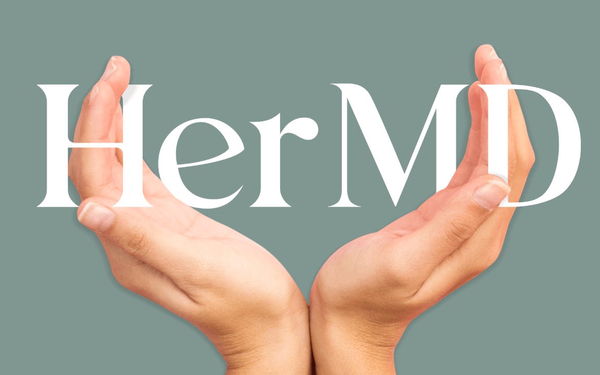
A month ago today (June 2), women’s menopause and sexual wellness
healthcare provider HerMD pivoted from a business model of physical locations whose patients could also use telehealth services, to an online-only platform.
The 10-year-old company is backing
its virtual launch with Meta, Google and digital out-of-home buys in the Cincinnati, Indianapolis, Nashville, and Millburn, New Jersey markets -- the four locations where it previously had its
physical facilities serving more than 25,000 patients. It plans to start marketing next in California, and then in all 50 states by the end of 2026, CEO/Co-founder Komel Caruso tells Pharma &
Health Insider. After all, she says, the whole reason for moving to a virtual care model was “to be able to expand across the country more quickly.” Still, the model is also dependent
on developing relationships with doctors nationwide, since telehealth rules vary from state to state.
advertisement
advertisement
HerMD’s media buying is handled by Elevate, which also works with the company on
creative and dealings with social media platforms to ensure that its ads make it through social media’s complex approval process – which has been notorious for rejecting ads using such
terms as “vaginal dryness,” “menopause” or “sexual wellness.” Such ads are often “flagged as porn and adult content,” Caruso explains.
Since first engaging Elevate a couple of years ago, Caruso says the content of HerMD’s ads hasn’t changed much, but it’s been able to go to a platform like Meta and demonstrate
that its ads are tied to healthcare, “and it’s a health issue.”
“It took a lot of communication,” she says. “We had to really work our way through contacts,
either at Google or through Meta, have them review the ads and then ultimately approve them. That could take weeks, but we felt it was worth it. We were seeing male healthcare ads talking about
erections, getting hard, etc. go through without having to appeal. Then you see menopause or sexual health-related ads that aren’t even as aggressive in tone, and those were being
rejected.”
As a result of the new efforts, Caruso says, “we were able to get through words like ‘sexual health care’ that other companies were not. They were having to
misspell ‘sexual health care’ or put a star [asterisk] for the ‘e.’” (for an example from competitor Midi Health, see here).
The “incredible amount of censorship in women’s
health care, in particular with menopause and sexual health, but also reproductive rights really is a public health care issue” because it’s “causing increased barriers to finding
care and solutions. When you censor ads that are giving women solutions…you’re hindering their ability to seek care and treatment,” Caruso says.
With the help of Elevate,
HerMD has also been able to better “understand why the consumer is seeking your services and where they are emotionally in their journey….Through their technology, they were able to
aggregate data we gave them on our patients and data they had on this subset of the population.
“Customer acquisition costs for digital health care companies, and just health care
companies in general can be between $400 and and $700 per customer,” she says. But the company was able to get its customer acquisition cost down to $95 on the high end, and sometimes, through
its ads, into the $30 to $60 range.
HerMD also reports a 24% lowercost-per-action compared to earlier campaigns.
The ultimate aim of its marketing, Caruso notes, is to
“reach the consumer with a compelling message.”